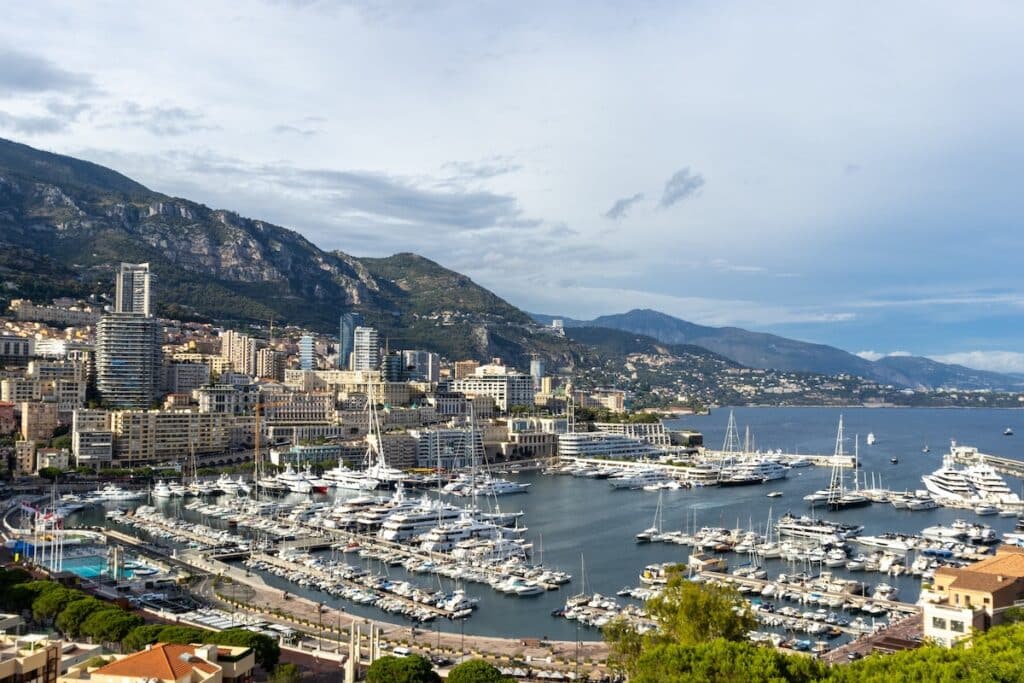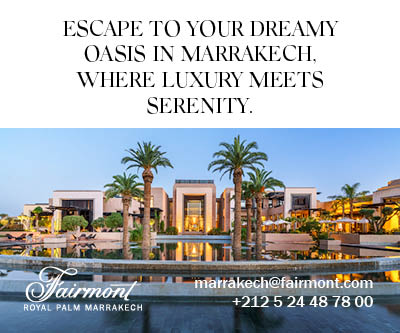Everything you need to know about moving to Monaco

An A to Z practical guide to a successful move.
It’s a place that people still dream about! Monaco, with its sunny weather, luxury boutiques and great security, continues to attract tourists, but also people who are looking for a new place to live.
Monaco is an ideal place to settle down as a family. But you still need to know where and how to go about it! Let us be your guide!
1. What are the prerequisites for becoming a Monaco resident?
A certain number of conditions have to be met before you can set up home in the Principality. If you are a citizen of the European Economic Area (EEA), all you need is a valid identity card or passport. No visa is required.
However, if you are a citizen of a country outside the EEA (including the UK, therefore), you will need to apply for a long-term visa for Monaco, which is issued by the French authorities (please note that this visa also applies to minors) You can contact the French Consulate in your country of residence. Formalities are different depending on your nationality and country of origin.
You will also need to be able to guarantee sufficient financial resources, i.e. have an employment contract, be the manager or director of a company, be self-employed or have started up your own business, or be supported by a third party, or have sufficient savings. You will also need to provide proof of good character, such as a clean criminal record or equivalent.
Finally, once you have found accommodation, you will need to prove that you have a place to live in Monaco of a suitable size for the needs of the household, to obtain official residency status. Once all these conditions have been met, you can apply for a residence permit (see point 3).
2. Which neighbourhood to choose?
The Principality has a number of different districts, with varying average accommodation prices. While the average price per square metre in Monaco recently broke the symbolic 50,000 euro barrier, it’s worth noting that the location of the property you’re after will inevitably have an influence on the sale price.
For example, latest estimates indicated that Monte Carlo, Larvotto and Fontvieille are the most expensive areas, while Jardin Exotique and Les Moneghetti are theoretically less expensive. Of course, the surface area of your home will also be a factor, as will any building works nearby. To meet the growing demand for residential accommodation, Monaco is always building, and it is not uncommon to see new buildings being erected, sometimes resulting in a drop in the value of neighbouring homes, whose views are then blocked.
Be that as it may, the Chambre Immobilière de Monaco website features a large number of certified member realtors, who will find the perfect property for you!
3. How to obtain a residence permit?
A ‘carte de séjour’ (residence permit) is compulsory for anyone over the age of 16 who wishes to reside in Monaco for more than three months a year. There are different types of permit depending on your situation:
- Temporary: valid for 1 year, with no prior residence requirement. The first permit costs 80 euros, and it costs 40 euros to renew.
- Ordinary: valid for 3 years, after 3 years’ residence. The first permit costs 100 euros, and renewals cost 50 euros.
- Privilege: valid for 10 years, after 10 years of residence. The first permit costs 160 euros, 80 euros to renew.
- Monegasque spouse: valid for 5 years for spouses of Monegasque nationals and who have been resident in the Principality for at least 1 year. The first permit costs 80 euros, and 40 euros to renew.
You can find the list of supporting documents required and apply online.
4. How to open a bank account in Monaco?
If you would like to open a bank account in Monaco, whether for personal or business purposes, there is a very wide choice of banks in the Principality. The Association Monégasque des Activités Financières (AMAF) lists a large number of certified banks and their contact details on its website.
5. Do I need to take out insurance in Monaco?
As in France, certain types of insurance are compulsory in the Principality, in particular for on-land motor vehicles. There are many agencies in the Principality to provide you with the best cover for your home, vehicles, business or health.
6. Utilities… which contracts to take out?
A word to the wise: only Monaco Telecom or Orange (and partners) subscribers enjoy optimum internet coverage in the Principality. We therefore strongly recommend you opt for one or other of these mobile networks if you are moving to Monaco.
To take out a subscription with Monaco Telecom, you will need to go to their store with the following documents:
- A Relevé d’Identité Bancaire (RIB – bank details form)
- A piece of ID
- Proof of residence (copy of the lease, property deeds, etc.)
- Full address information (street number, street name, block, floor and logo characters, i.e. the square that is usually above the entrance door, with five digits or letters)
Once you have found your accommodation, you will need to get in touch with the Société Monégasque de l’Electriité et du Gas (SMEG – Monaco Electricity and Gas Company) and the Société Monegasque des Eaux (SMEaux – Monaco Water Company). In both cases, you will need to provide:
- A piece of ID
- A Relevé d’Identité Bancaire (RIB – bank details form)
- A document with address details (copy of the lease, property deeds, etc.)
SMEG :
- 10, avenue de Fontvieille, Monaco
- Monday to Friday, 8 am to 5.30 pm
- +377 92 05 05 00 / commercial@smeg.mc
SMEaux :
- 29, avenue Princesse Grace, Monaco
- Monday to Friday from 8.30 am to 4 pm non-stop
- +377 93 30 94 48 / smeaux@monego.mc
- You will have water within 24 hours of your appointment.
7. How to exchange my driving licence and move around?
If you are settling in Monaco, you must exchange your (currently valid) foreign driving licence for a Monegasque licence within a year of moving. After this deadline, you will have to resit your driving test.
To exchange your licence, you must contact the to the Service des Titres de Circulation (Driver and Vehicle Licensing Office). There is a €115 charge for this procedure. You can find the complete list of what you need to provide online.
Please note that you can also register your vehicle in Monaco if you wish. Once again, you will have to make an appointment with the Service des Titres de Circulation. The network of 40 car parks in the Principality allows you to park easily, with several types of season tickets available.
If you do not have a car, you can easily move around on foot in Monaco, because the territory’s surface area is only two square kilometres. You can also avail yourself of the free Monapass application to use the self-service bikes or the CAM bus network, which covers the Principality very well. Warning! if you move around on an electric scooter, helmets are mandatory !
8. How to handle my children’s schooling?
Monaco has a number of schools, ranging from nursery to higher education. It should be noted that schooling is compulsory in the Principality from the age of six and up to the age of 16.
Kindergartens welcome children from the age of three, but beware, places get snapped up quickly. This is also true of nurseries and day-care centres. In both cases, children of Monegasque nationality have priority, so best plan ahead! You should contact the Mairie de Monaco (Town Hall) to apply for a place in one of the 13 childcare establishments.
The Principality also has 9 free-of-charge public schools , from kindergarten to ‘terminal’ (UK year 13, US grade 12), and a number of private institutions, both under government contract and independent. It should be noted that schooling in Monaco provides a number of significant advantages:
- Sports education provided by specialised teachers from primary age up, which enables children to start swimming as early as the age of 5.
- English from the age of 3
- Many options and different international classes are available throughout the child’s school career
You can register your child online in the « Enrolment » section.
After the baccalauréat, however, the choice is a little limited in Monaco. However, the quality of teaching at the International University of Monaco has an excellent reputation. If the course your child is interested in is not on offer, you can always opt for Nice Côte d ‘Azur University, for example.
9. How to look after my health ?
Monaco has an excellent health system, with leading professionals and cutting-edge technology. The Centre Hosptalier Princesse Grace (CHPG – Princess Grace Hospital Centre), which will be completely refurbished by 2026, now has an online digital portal to make it easier to book appointments. The A&E system has also been completely reworked to improve responsiveness as well as the quality of patient care and comfort.
Other health facilities include the Cardio-Thoracic Centre, which has recently been equipped with revolutionary scanners, and which, thanks to its state-of-the-art technical platform, was even selected to operate live at a huge international congress, attended by over 800 professionals.
IM2S, the Orthopaedic Medical and Surgical Clinic in Monaco, is also a leader in its field. In October 2022, for example, the facility performed the world’s first successful reconstruction of the anterior cruciate ligament, in the left knee of a 20-year-old rugby player from Nice, using the patellar tendon from her mother’s right knee.
For renal concerns, the Centre d’Hémodialyse Privé de Monaco, located at Port de Fontvieille, looks after patients with kidney problems. More than 15,000 dialysis sessions are carried out annually.
Finally, for general medicine, you can consult the online directory of the Conseil de l’Ordre des Médecins de Monaco (Monaco Order of Physicians). Seniors or people with disabilities may also make an online application for a home help.
More generally, the Monacosanté Online Portal simplifies procedures and appointments and provides details of the on-call doctors and chemists.
Useful numbers:
- Emergencies : 112 / 18
- Centre Hospitalier Princesse Grace : +377 97 98 99 00 / 1, avenue Pasteur, 98000 Monaco
- Centre Cardio-Thoracique de Monaco : +377 92 16 80 00 / 11 bis, avenue d’Ostende, 98000 Monaco
- IM2S : +377 99 99 10 00 / 11, avenue d’Ostende, 98000 Monaco
- Centre d’Hémodialyse Privé de Monaco : +377 92 05 68 00 / 32-34 Quai Jean-Charles Rey, 98000 Monaco
10. How to meet people once I get there?
Once you have moved in, it’s time to build some professional or personal relationships. The Principality boasts a large number of clubs and associations, for people who have the same leisure interests or nationality. The full list of foreign associations is available via this link, in the ‘Meet the international community’ section.
Other clubs also promote relations between residents, such as the Club des Résidents Étrangers de Monaco (CREM – Monaco Residents’ Club), the Yacht Club de Monaco or the Monaco Ambassadors Club (MAC), which regularly organise events and outings for groups.
Be aware that you can formally apply to Prince Albert II for Monegasque citizenship after 10 years’ residence, if he deems you deserve it and if you have become an integral part of the Principality’s business, social or cultural fabric. It is also possible to obtain nationality through marriage, after 20 years of living with a Monegasque national.













